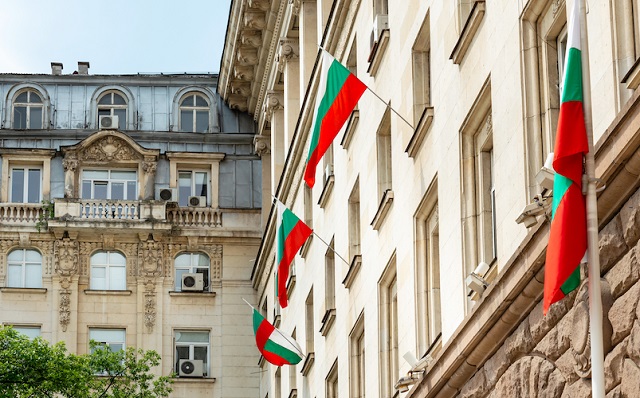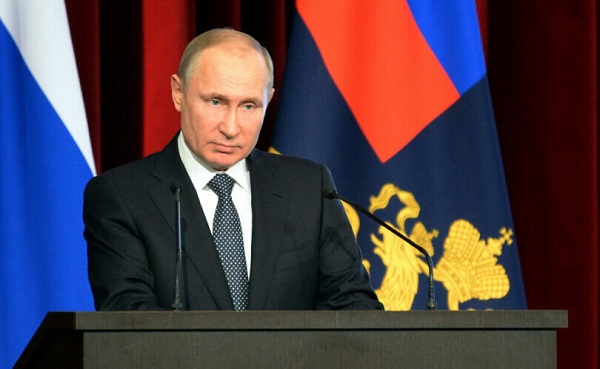International
The UN and EU are targeting Bulgaria for moving to protect children

From LifeSiteNews
Bulgaria overwhelmingly passed a ban on LGBT propaganda in schools, and the country appears determined to resist pressure from LGBT activists and their globalist allies.
In 2021, the Hungarian government passed legislation that introduced stricter laws protecting children from pedophilia and also making it illegal to promote homosexuality or “sex changes” (“gender transition”) in schools and in the press to minors. The Hungarian government made clear that the law did not impact content aimed at adults or entertainment but propaganda targeted at children. Hungary promptly became a target for the full fury of the international elites.
The attitude of the European Union was perhaps best summarized by then-Dutch Prime Minister Mark Rutte, who warned ominously of the EU’s intention of “bringing Hungary to its knees” over Prime Minister Viktor Orbán’s opposition to the LGBT agenda, and billions of EU funds (including COVID recovery funds) were initially withheld from Hungary to that end. Within the EU, there are many countries with socially conservative majorities – but those countries have learned the hard way that the LGBT flag flies alongside the EU flag in Brussels.
In fact, the European Commission at the European Union Court of Justice went so far as to launch a legal case against Hungary in 2022, with the intent of forcing Hungary’s parliament to repeal the bill – and 15 countries signed on, including the Benelux countries, Ireland, Denmark, France, Germany, and Sweden. The message was clear: being part of the EU club comes with specific social obligations, the most important of which is submission to the LGBT movement and the national implementation of its agenda.
Earlier this month, Bulgaria passed a bill banning LGBT propaganda in schools, with a supermajority of parliamentarians – 159 to 22 – voting in favor. In response, the LGBT movement has already swung into action. First, UN Human Rights Office spokesperson Liz Throssell “expressed deep concern” over the law, urging Bulgarian authorities to “reconsider the law in light of the country’s international human rights obligations.” Throssell further remarked that “addressing stigma and misinformation is vital for fostering acceptance, tolerance, and the creation of inclusive societies.”
Translated, of course, this is a United Nations spokesperson insinuating that the Bulgarian law targeting gender ideology and other aspects of the LGBT agenda may actually be a violation of international human rights and stating, in no uncertain terms, that Bulgaria must instead work towards the normalization of LGBT ideology and recreate its society to conform to the LGBT movement’s standards. An unelected progressive bureaucrat, in short, is telling a sovereign country to change its values and change its laws.
LGBT activists are urging the European Union to step in, as well – especially when President Ruman Rudev declined to veto the bill on August 15. “This law is not just a Bulgarian issue — this is a Russian law that has found its way into the heart of Europe,” Rémy Bonny, executive director of the LGBT activist group “Forbidden Colours,” told Politico’s Brussels Playbook. “The European Commission must step in and hold Bulgaria accountable.” He did not mention the fact that the bill was passed with support from every major party, including those supportive of the EU. “Senior figures” from the EU’s LGBTI Intergroup also called on European Commission President Ursula von der Leyden and Equality Commissioner Helena Dalli to “urgently condemn” the law.
In response, the European Commission sent a letter to Bulgarian Education and Science Minister Galin Tsokov on August 13 “to request further information on the legislation,” with a spokesperson stating that: “The Commission remains steadfast in its commitment to tackling discrimination, inequalities and challenges faced by LGBTIQ individuals — including in education, as outlined in our LGBTIQ Equality Strategy of November 2020.” Other activist groups, including Action, Buditelkite, LevFem, and Feminist Mobilizations, have also urged action, and called on the Bulgarian president to veto the bill.
Thus far, the Bulgarian government appears determined to ignore these predictable criticisms. Kostadin Kostadinov, chairman of the Revival Party that introduced the law, called it “a historic breakthrough” and stated that “LGBT propaganda is anti-human and won’t be accepted in Bulgaria.” The vast majority of Bulgarian parliamentarians agree with him – but that won’t stop the UN, the EU, and the LGBT activists who drive the international agenda from doing their best to force their agenda on Bulgaria through threats, soft power coercion tactics, and public condemnation.
Crime
Hero bystander disarms shooter in Australian terror attack

Insane footage shows a bystander attacking and disarming one of the terrorists, who appears to have been armed with a long rifle, during today’s shooting attack on an event celebrating Hanukkah at Bondi Beach in Sydney, Australia. pic.twitter.com/mJceco22bJ
— OSINTdefender (@sentdefender) December 14, 2025
The chaos that struck Australia on Sunday night produced one moment of astonishing courage: a Sydney shopkeeper, armed with nothing but instinct and grit, charged a gunman at Bondi Beach and wrestled the rifle out of his hands as terrified families ran for cover. Authorities say the act likely prevented even more deaths in what officials have already called an antisemitic terror attack that left 12 people dead and dozens wounded during a Hanukkah celebration along the water.
The hero has been identified as 43-year-old fruit shop owner Ahmed Al Ahmed, a father of two who happened to be nearby when gunfire erupted at the beachfront event “Hanukkah by the Sea,” which had drawn more than 200 people. Footage captured the moment he marched toward the shooter, grabbed hold of the rifle, and overpowered him in a brief, violent struggle. As the gunman hit the pavement, Al Ahmed momentarily pointed the weapon back at him but didn’t fire, instead placing it against a tree before another attacker opened up from a bridge above. He was hit in the hand and shoulder and is now recovering after emergency surgery.
A relative told Australia’s Channel Seven that Al Ahmed had never handled a gun in his life. “He’s a hero — he’s 100 percent a hero,” the family member said. New South Wales Premier Chris Minns echoed the praise, calling the scene “unbelievable,” adding, “A man walked up to someone who had just fired on the community and single-handedly disarmed him. Many people are alive tonight because of his bravery.”
Police say two shooters stepped out of a vehicle along Campbell Parade around 6:40 p.m. and began firing toward the beach. One gunman was killed, the other is in custody in critical condition. Detectives are also investigating whether a third attacker was involved, and bomb units swept the area after reports that an explosive device may have been planted beneath a pedestrian bridge. The toll is staggering: 12 dead, including one shooter, and at least 29 wounded — among them children and two police officers.
Prime Minister Anthony Albanese condemned what he called “a targeted attack on Jewish Australians on the first day of Hanukkah,” saying, “What should have been a night of joy and peace has been shattered by this horrifying evil attack.” Emergency crews flooded the beach as hundreds of panicked people sprinted away from the gunfire. Video shows one attacker firing down toward the sand from the bridge behind Bondi Park before being shot himself in a final standoff captured by drone footage. Both gunmen appeared to be carrying ammunition belts, with witnesses estimating up to 50 rounds were fired.
Australian police have cordoned off properties linked to the suspects and continue to canvass Bondi for additional threats. What remains clear is that Sunday’s attack was met with extraordinary acts of self-sacrifice, none more dramatic than a shopkeeper from Sutherland who walked into gunfire to stop further slaughter.
Crime
Terror in Australia: 12 killed after gunmen open fire on Hanukkah celebration

One of the suspected gunmen of the Bondi Beach massacre shooting in Australia has been identified as Naveed Akram
What was supposed to be a peaceful Sunday evening celebration of Hanukkah on one of the world’s most famous beaches instead descended into chaos and bloodshed, as two attackers opened fire on crowds gathered at Sydney’s Bondi Beach, killing 12 people — including one of the gunmen — and injuring at least 11 others.
The violence erupted shortly after 5 p.m. local time, just as more than a thousand people were gathering for “Hanukkah by the Sea,” an annual event held near a playground at the Bondi foreshore. According to Australian outlets, the shooting began as families were lighting candles and singing, sending parents scrambling to shield children and worshippers diving for cover along the promenade.
New South Wales Premier Chris Minns confirmed late Sunday that one attacker was killed at the scene and a second was arrested. He said the evidence already points unmistakably toward an anti-Jewish terror attack. “What should have been a night of peace and joy was shattered by a horrifying, evil attack,” Minns told reporters, noting investigators believe the plot was “designed to target Sydney’s Jewish community.”
NSW Police Commissioner Mal Lanyon said well over a thousand people were present when the shooting started, including two state police officers who were among those struck by gunfire, according to ABC News. Police also located what appeared to be an improvised explosive device in the vicinity shortly after the initial gunfire. Bomb technicians neutralized the device while officers locked down the area and urged residents to shelter in place.
Around 9 p.m., with ambulances and tactical units pouring in, authorities described the unfolding chaos as a “developing incident” and warned anyone nearby to stay indoors. Multiple victims were treated on the sand and the surrounding walkways before being rushed to hospitals across Sydney.
As investigators piece together the attackers’ movements and motive, officials say the toll could have been even worse given the size of the crowd and the presence of children throughout the event. What remains is a shaken city, a grieving Jewish community, and a country once again confronting the threat of political and religious extremism on its own soil.
-

 Alberta1 day ago
Alberta1 day agoThe Recall Trap: 21 Alberta MLA’s face recall petitions
-

 International1 day ago
International1 day agoTyler Robinson shows no remorse in first court appearance for Kirk assassination
-

 Energy1 day ago
Energy1 day agoCanada’s future prosperity runs through the northwest coast
-

 illegal immigration1 day ago
illegal immigration1 day agoUS Notes 2.5 million illegals out and counting
-

 Business2 days ago
Business2 days agoHigh-speed rail between Toronto and Quebec City a costly boondoggle for Canadian taxpayers
-

 Business2 days ago
Business2 days agoThe world is no longer buying a transition to “something else” without defining what that is
-

 2025 Federal Election2 days ago
2025 Federal Election2 days agoToo Close for Comfort: Carney Floor Crosser Comes From a Riding Tainted by PRC Interference
-

 Daily Caller19 hours ago
Daily Caller19 hours ago‘There Will Be Very Serious Retaliation’: Two American Servicemen, Interpreter Killed In Syrian Attack









